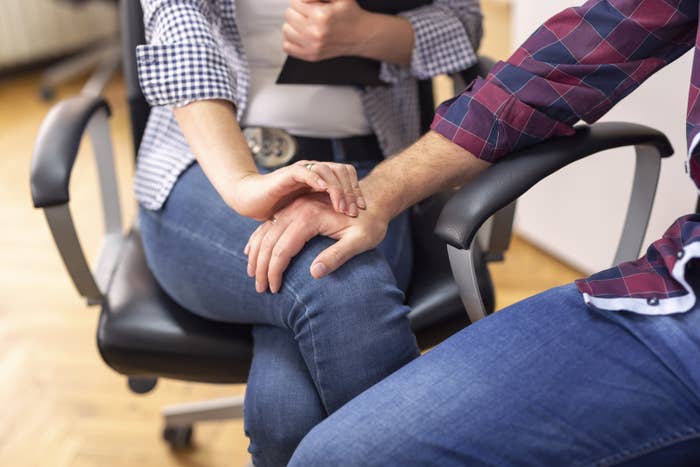
Australian woman Paige — a pseudonym to protect her privacy — was working as a lawyer at a state government department when she was sexually harassed and assaulted by a manager.
"He’d always been flirtatious with me and I’d always said 'I’m not interested'," the 30-year-old told BuzzFeed News. "It was relentless over a year and a half."
He would invite her to work meetings with five or six people but Paige said when she turned up, he would be the only person there.
When she was 27, the manager picked Paige up in his car to drive to a work event.
"But he took me somewhere else and I was trying to talk to him about this workplace initiative and he kept trying to kiss me," she said.
The Australian Council of Trade Unions has today released the interim results of a survey of more than 7,500 workers, finding that more than 60% of women surveyed had been sexually harassed at work, but less than half of those reported the incident. Of the men surveyed, 31% said they had experienced sexual harassment at work.
The survey is open until the end of November for anyone to participate and is not controlled to represent a cross-section of the population.
Forms of harassment included crude or offensive behaviour, unwanted sexual attention, inappropriate physical contact, and harassment on social media.
Inappropriate physical contact of a sexual nature was reported by 34% of those who said they'd been sexually harassed at their most recent workplace.
Paige didn’t report it straight away.
“There was an absolute power imbalance and that was the issue because even though I could say no to the advances, I couldn’t say no to the work stuff. I was worried they’d move me off something I’d been working on for two years and onto something else.”
Eventually, after learning the man had made similar advances toward other young female employees, Paige reported the incident, and her colleague was investigated about multiple allegations. A year after Paige first reported the assault, he was fired.
It wasn’t the only harassment she experienced as part of her job. Paige said another male colleague pulled her aside and told her she should consider “moderating” how she dressed in the workplace.
“I enjoyed wearing colourful pencil dresses but I didn’t show cleavage when I was in the workplace,” she said.
“The men on my team would ask whether I had a meeting with a manager whenever I wore lipstick. It was a really unpleasant culture and I was navigating it without any guidance or support.”
Most people (62%) who said they'd been sexually harassed said they wanted better protection from victimisation, and 33% wanted a quicker complaints process.
“I never really thought about why I didn’t complain at first,” Paige said. “I thought it was a matter of personal strength and resilience, and I’ve since learned it is not at all. Eventually I thought: Well, that is embarrassing for him and not me.”
If your sexual harassment complaint isn't being taken seriously in your workplace, you can make a complaint to the Australian Human Rights Commission with or without a lawyer.
If you or someone you know is experiencing violence and need help or support, there are national and state-based agencies that can assist you 24 hours a day, seven days a week. Call 1800 RESPECT (1800 737 732).
